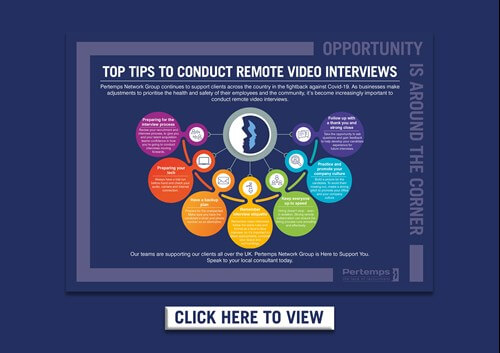Over the last few years we have seen employers make significant progress in fostering diversity and inclusion, realising that this needs to be a key hiring consideration, as well as seeing how it can unlock productivity and the potential of their employees.
With UK skills shortages and a tight labour market, organisations are looking for new talent pools and neurodiverse individuals have become an attractive target. Neurodiverse candidates can include those dyslexia, ADHD, Tourette Syndrome, Autism Spectrum Disorder (ASD), or other atypical neurological condition.
But are we giving our neurodiverse candidates an opportunity to show their full potential?

According to the National Autistic Society, only 16 per cent of autistic adults are in full-time work and of those who are unemployed 77 per cent claimed that they want work.
It is common knowledge that autistic people bring immense value and are some of the most creative individuals. But autistic people face many barriers and are often misunderstood by recruiters and employers. If we can learn anything from this, it clearly shows the importance of adopting inclusive recruitment practices to access.
Major companies such as Microsoft, SAP, Enterprise Rent-a-Car and JP Morgan have realised the value that employees with neurodivergent conditions such as autism can bring to organisations. Simple changes to your recruitment process can help you ensure you are open and attractive to neurodiverse employees.
Educate your employees
It is important to provide adequate training to those employees involved in the recruitment process. There are common hiring biases and it’s important to be aware of these as this may be preventing your employees from connecting with the right candidate.
Creating friendly job descriptions
Job descriptions need to be clear, precise, simplified and avoid any unnecessary jargon. Make sure you highlight the exact skills necessary for the role, so neurodiverse candidates know straight away what is required. Also provide alternative ways to view job descriptions such as audio and visual.
Alternate job application processes
Employers need to be diverse within their job application process, to ensure candidates have alternative ways to showcase their skills. Through using forms such as essays, digital CV, video or projects, give an opportunity for candidates to showcase their skills and provide an alternative if M methods are difficult to complete.
Make the interview process as comfortable as possible
When inviting candidates for interview, always ask if they have any reasonable adjustments for the day to help make the interview more comfortable. During the interview, ask clear and unambiguous questions, try to make the interview practical as possible. It’s also common practice for extra time to be given to neurodivergent candidates for interviews or assessments.
If you would like help in reviewing your recruitment processes, to ensure you are providing equal opportunities for every employee, speak to your local Pertemps team today.


